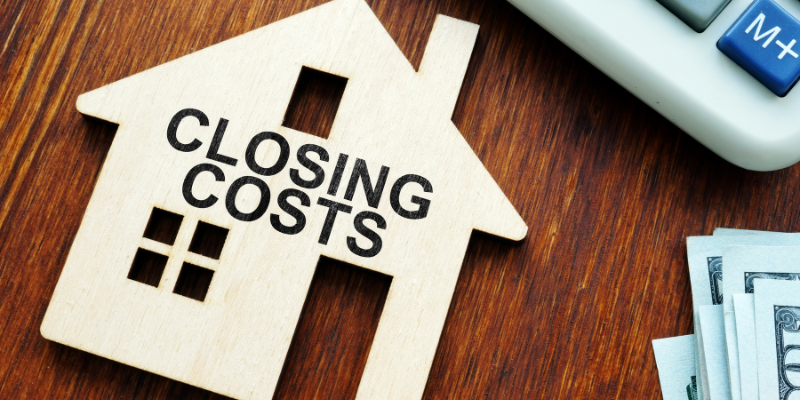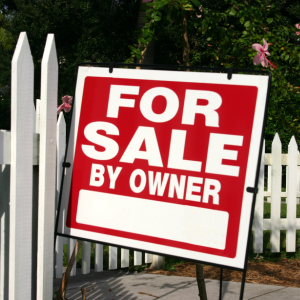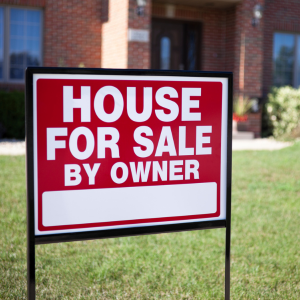
Understanding Closing Costs in Long Island, NY: A Comprehensive Guide
If you want to sell your Long Island, NY home without a realtor, you must know about closing costs. These costs are a list of fees and other costs that homeowners have to pay during the transaction.
Transfer taxes, title insurance, attorney fees, and other administrative costs are some examples. The total amount you might pay in closing costs on Long Island depends on the rules and conditions of the market.
Transfer taxes are usually one of the bigger costs, and they are calculated as a percentage of the sale price. Title insurance protects your property from legal claims, and attorney fees pay for legal help to ensure all documents follow New York state law.
Administrative fees may include the costs of preparing documents, recording deeds, and processing other necessary paperwork. When people sell their homes on Long Island without a realtor, they have to deal with these problems independently or with little help. This shows how important it is to know all of the possible costs that come with closing a deal on Long Island.
Key Factors Influencing Closing Costs in Long Island Real Estate
If you want to sell your Long Island home without the help of a realtor, you need to know the main things that affect closing costs. In this area, selling a house comes with a number of costs that the seller needs to think about.
In New York, transfer taxes, including state and local taxes unique to Long Island, comprise a big part of the closing costs. Another important thing to think about is the legal fees. In New York, it is common to hire a lawyer to review contracts and oversee the whole process.
Title insurance can also add to the total closing costs, but it protects against legal disputes over who owns the property. There may also be fees for property appraisals needed to get an accurate market value for your home. This makes sure that all financial negotiations are fair. check Out our Article about Closing Timeline after House appraisal in New York.
Home inspections may cost more if the property’s condition needs to be checked in detail. Also, any unpaid liens or city fees must be paid off before the job is finished, which could change the total cost.
When selling their homes on Long Island independently, sellers can better handle the complicated nature of closing costs if they plan for these different factors.
Detailed Breakdown of Common Closing Costs in New York
If you want to sell your home on Long Island, New York, without a real estate agent, you must know about the complicated closing costs. In New York, sellers often deal with several important costs independently.
Transfer taxes are a big part of it. The state sets the tax rate based on how much the property sold for. Also, sellers might have to pay any property taxes that are still due up until the closing date.
If the property already has a mortgage or lien, the seller must ensure it is fully paid off and released. This could mean paying extra for legal services and recording. Title insurance is another important cost that protects against possible disputes about who owns a piece of property. This is usually the buyer’s responsibility, but in some cases, it falls on the seller during negotiations.
Legal fees can also increase quickly because New York law requires attorneys to handle real estate closings. As part of their job, attorneys write the necessary paperwork and ensure all local rules are followed. If you paid for utilities or HOA dues after the closing date, you may also need to change your payments.
By learning about these common costs and getting ready for them, sellers on Long Island can handle the complicated world of closing costs without needing a realtor’s help. Contact us today to get expert guidance and ensure you’re fully prepared.
How to Navigate Closing Costs Without a Realtor in Long Island

If you want to sell your Long Island home without a realtor, you need to pay close attention to the details and know what the different fees are. On Long Island, people who want to sell their home need to know about transfer taxes, title insurance fees, and possibly attorney fees.
Transfer taxes are usually found as a percentage of the sale price, and they can have a big effect on how much money you end up with. Also, sellers might want to hire a real estate lawyer to help them through the complicated legal process and ensure their paperwork is correct. This can help them avoid making mistakes that cost a lot of money.
Title insurance is usually a necessary cost during the closing process and protects against any future claims or disputes over who owns the property. Before the sale is finalized, sellers may also have to pay any outstanding liens, utility bills, and prorated property taxes.
By fully understanding these parts, sellers can better plan for closing costs without the help of a real estate agent. Prestige Home Buyers can help make the transaction go more smoothly in Long Island’s competitive real estate market.
Strategies to Minimize Closing Costs When Selling Property in Long Island
If you want to sell a house on Long Island without a real estate agent, you should use strategies to keep closing costs as low as possible. Negotiating directly with buyers is one of the best ways to cut these costs because both sides can agree on who pays for what.
Also, sellers might want to get a pre-inspection report to find problems early on and avoid having to make repairs at the last minute, which could increase the costs. Using flat-fee MLS services can also be helpful because they can give you the exposure you need while saving you money on realtor commissions.
Learning about the rules and typical seller duties in Nassau or Suffolk County can also help you plan for and maybe even negotiate some fees. Hiring a real estate lawyer with experience and knowledge of Long Island transactions can help ensure that all of the legal paperwork is handled quickly and correctly, which could save you money in the long run.
Comparing Closing Costs: Realtor Vs. No Realtor Scenario
When selling a home on Long Island, NY, it’s important to know how the closing costs will change if you hire a realtor or go the “For Sale By Owner” (FSBO) route. When people sell their homes, they usually have to pay a commission fee. This fee is usually around 5 to 6 percent of the sale price.
This fee may greatly affect the money you earn from the sale. If you sell your home without a real estate agent, you may have to pay other fees.
For Sale By Owner (FSBO) sellers might have to pay for advertising to find buyers and legal help to ensure the proper paperwork and negotiations. In both cases, closing costs, such as settlement fees, transfer taxes, and title insurance, also need to be paid.
When you sell your home for cash in Long Island, NY, you need to be extra careful when planning your budget for extra services that realtors normally provide. Knowing these things can help people who want to sell their Long Island home without using a real estate agent make smart decisions about how to handle their money.
Legal Considerations for Self-closing Real Estate Deals in Long Island
You need to know the laws about closing costs if you want to sell your Long Island home without a real estate agent. People who sell their own homes must make sure they follow all the laws and rules in New York State and their area when they do this.
It is very important to get all of the necessary paperwork together. The deed, transfer tax forms, and disclosure statements are all part of this. All of these are needed for a legally binding deal. People who want to sell their homes should also know if there are any liens or other claims on them that could make it harder to sell.
When dealing with these tricky legal issues, it can be very helpful to get help from a real estate lawyer. Also, it’s very important to follow Long Island’s specific building and zoning laws so you don’t get in trouble with the law during the closing process.
Knowing these legal requirements helps the deal go more smoothly and ensures that everyone follows New York law.
Legal Requirements for Selling Your Home Without an Agent

You must know the law to sell your Long Island home without an agent. This will help the process go smoothly. First, find out what the open records laws are in New York State. People who want to buy a home from the seller must give them a Property Condition Disclosure Statement because of these laws.
This paper lists all the known problems or flaws with the property. The seller must also get a clear title in order to give the item to someone else legally. They can help you get rid of any liens or other claims on the title. You may need to hire a title company or an attorney for this.
A real estate lawyer is someone you should hire. They can help you write the sales contract and check it to ensure it follows state law and does what you want it to do. Also, know the zoning laws in your area so you don’t misuse or alter property without permission.
Also, know what taxes you might have to pay when you sell your home. If you sell a house after living in it for a certain amount of time and where you live, you might have to pay capital gains taxes. To sum up, setting up separate inspections and appraisals will help you figure out how much the house is worth on the real estate market on Long Island, which is currently very tough.
Tax Implications and Credits Affecting Real Estate Closings in NY
Want to sell your New York home on Long Island without using a real estate agent? Learn about the tax breaks and consequences that are out there. In New York, people who sell things need to pay taxes. One is the state transfer tax, which is $4 for every $1,000 that the house is sold for.
On Long Island, some towns and cities may charge their own transfer taxes, which would raise the closing costs even more. People who have bought a house whose value has gone up significantly may have to pay capital gains taxes. The seller needs to know about these fees.
But there are tax breaks and credits that can help bring these prices down. For gains of up to $250,000, single people don’t have to pay capital gains tax. For gains of up to $500,000, married couples don’t have to pay capital gains tax. As long as the house has been the main home for at least two of the last five years, this is true. It can help your finances a lot if you know these tax rules and use any available credits if you want to sell your home in this area on your own.
Talking to a tax expert who works with real estate deals in New York can help you determine the best way to close the deal while following all state and federal rules.
How Appraisal Fees Impact Your Total Closing Costs in Long Island
If you want to sell your Long Island home without a realtor, you need to know how appraisal fees affect your overall closing costs. Appraisal fees are a big part of closing costs and can change how much money you actually get from the sale.
An appraisal gives a fair assessment of your home’s value, which is important for both buyers and lenders to ensure that the price paid for the home is in line with its real market value. Appraisal fees on Long Island depend on factors like the property’s size and location, but they are usually $300 to $600 or more.
Even though it’s not required by law if you’re selling without a real estate agent, getting a good appraisal can help you avoid arguments and negotiations with buyers who might question your asking price. The real estate market on Long Island is always changing, so having an up-to-date appraisal helps you set a fair price and also speeds up the loan process if a buyer needs mortgage approval.
Knowing about these costs beforehand, you can better manage your financial expectations and plan for when you sell your house fast for cash in Brooklyn, NY, and nearby areas.
Common Mistakes to Avoid When Calculating Closing Expenses
There are some mistakes that people often make when they’re trying to figure out closing costs when they’re trying to buy or sell a home on Long Island without a realtor. There are a lot of people who buy homes who forget to pay for important fees like transfer taxes, title insurance, and property taxes. This can make their final payment much higher than expected.
People often get lawyer fees wrong because they don’t consider how much they cost or think that they are the same for every case. They might not expect this to put a lot of stress on their finances. When people buy homes, they also often forget to factor in costs that are spread out over time, such as homeowner association fees and utility bills.
Do not get a detailed list of all the closing costs from the lender early in the process. This is another mistake that can cause surprises at settlement. Also, it’s important to read lender statements carefully to avoid surprises and confirm that all the numbers match the loan estimates.
If you don’t make these common mistakes, you can get a better idea of how much money you need to buy a house on Long Island without hiring a realtor.
How Much Are Closing Costs Without a Lender?

When purchasing real estate in Long Island without the involvement of a lender, it’s crucial to understand the various components of closing costs. These expenses are often overlooked but can significantly impact your overall investment.
Closing costs typically include fees for title searches, title insurance, property taxes, and attorney services. In Long Island, these costs can vary depending on factors such as property value and specific municipal regulations.
Without a lender, you avoid mortgage-related fees like loan origination or discount points, but you still need to account for transfer taxes and recording fees. Additionally, hiring a knowledgeable real estate attorney is essential to ensure all paperwork is correctly handled and potential legal issues are mitigated.
Understanding these aspects helps buyers accurately budget for closing costs in Long Island real estate transactions conducted without a realtor or lender involvement.
How Much Does a Seller Pay in Closing Costs in NY?
In the Long Island real estate market, understanding closing costs without a realtor is crucial for sellers aiming to maximize their net proceeds. In New York, sellers typically pay several fees as part of their closing costs, which can total around 8% to 10% of the property’s sale price.
These expenses often include the real estate transfer tax, typically 0.4% of the sale price, and attorney fees, which can range from $1,500 to $3,000. Additionally, sellers may be responsible for paying a portion of property taxes and any outstanding liens or judgments against the property.
Without engaging a realtor, sellers must also account for potential marketing costs and buyer incentives. Understanding these elements helps Long Island sellers navigate closing costs effectively and ensures they are fully prepared for all financial obligations in the transaction process.
Need to sell your home fast? Prestige Home Buyers makes it easy with fair cash offers, no repairs needed, and a hassle-free process. We handle all the details so you can sell quickly and move on. Call (631) 336-9166 today for a no-obligation offer!
Helpful Long Island Blog Articles
- Selling Your Parents’ House In Long Island, NY
- Closing Costs When Selling A Home Without A Realtor in Long Island, NY
- How To Switch Real Estate Agents In Long Island, NY
- How To Sell Your Long Island Home Below Market Value
- Selling Your Home To a Developers in Long Island, NY
- Sell Your Long Island Home Owing Delinquent Property Taxes
- Sale Of Your Long Island Home With A Reverse Mortgage
- Selling Your Long Island Home And Making A Smooth Relocation
- Essential Paperwork Selling Your Home by Owner in Long Island, NY
- Living In a Long Island Home During Probate
- Understanding Asbestos Removal Costs For Homes In Long Island, NY
- Essential Guide To Condemned House Regulations In Long Island, NY
- Optimal Duration For Living In A Long Island Home Before Selling

| INFORMATION | COMPARATIVE MARKET ANALYSIS | BROKER | LISTING BROKER | REAL ESTATE BROKERS | PROPERTIES |
| SALES | CASH | BANK FEES | DATA | LENDING | LOAN |
| NASSAU COUNTY, NY | NASSAU COUNTY | EMAILS | THE STATE OF NEW YORK | REDFIN | INSURANCE PREMIUM |
| POLICY | MONEY | EMAIL ADDRESS | EMAIL ADDRESS | CONDO | CONDOMINIUM |
| TELEPHONE NUMBER | TELEPHONE NUMBER | PHONE NUMBER | CALIFORNIA | THE UNITED STATES | THE UNITED STATES |
| HOME APPRAISALS | PROPERTY VALUED | PAYMENTS | HOA | ADVERTISERS | TEXTING |
| TEXT MESSAGE | INTEREST | REAL PROPERTY | PRICING | CREDIT REPORT | CO-OP |
| CONCESSIONS | CONSUMERS | COMPANY | COMMUNICATION | TOWNHOMES | TOWNHOUSE |
| SUFFOLK COUNTIES | OPTIONS | MARKET ANALYSIS | MANSION TAX | INVESTORS | INTEREST RATES |
| INCENTIVIZE | HOME INSPECTIONS | DOWN PAYMENT | DEMAND | BORROWER | CUSTOMER |
